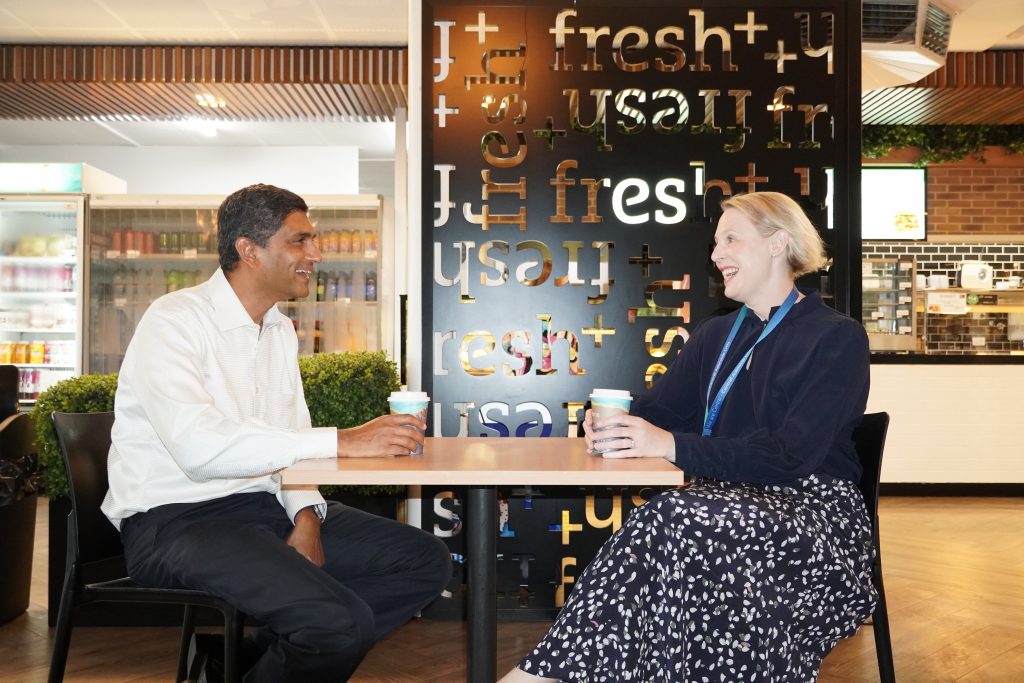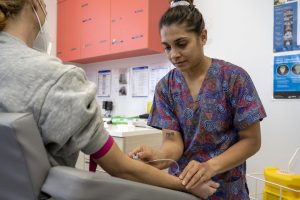Central Adelaide Local Health Network (CALHN) will be among the first health networks in Australia to introduce an internationally-recognised workforce culture program aimed at addressing poor professional behaviours that can undermine patient safety.
CALHN is partnering with the world-leading Vanderbilt University to implement the Vanderbilt professional behaviours model, which aims to make the network a safer and more reliable workplace for our consumers and clinical workforce, enhancing our ability to deliver world-class care.
It is designed to improve:
- patient safety
- clinician engagement
- professional standards.
CALHN’s Professional Accountability program is an evidence-based, organisation-wide framework encouraging positive behaviour through awareness and self-reflection and through feedback about unprofessional behaviours.
Training has begun with CALHN’s medical workforce, however all staff across the network will be encouraged to report unprofessional behaviour through a soon to be implemented confidential reporting system.
Vascular Surgery Registrar and CALHN’s Trainee Medical Officer Forum co-chair, Dr Kay Hon, said the Vanderbilt program would benefit patient care by strengthening CALHN’s workplace culture.
“It will encourage a cultural change, helping CALHN develop a lower stress, collaborative working environment, that delivers efficient and safe patient care,” Dr Hon said.
“While not everyone will experience or witness unprofessionalism at work, it is comforting to know that CALHN has a program to support every staff member.
“The program supports the promotion of an environment of psychological safety, so you don’t need to feel embarrassed or insecure about speaking up and wanting to ensure the well-being of our colleagues or even challenging the system to provide better patient care.”
Dr Hon said she benefitted from the program’s focus on effective communication strategies, which has helped her with day-to-day interaction with colleagues.
“This included practising how to address issues in a less intimidating and non-confrontational manner.”
Dr Andrew Vanlint, a Clinical Haematology Registrar at CALHN, attended Vanderbilt University in August 2020, studying alongside staff from the Mayo Clinic, McMaster Hospital and MD Anderson.
“Before the course began, I visited a hospital that had implemented the program two years earlier and it was good to observe how it had changed the culture in that hospital,” he said.
“They were able to cut down unprofessional talk, whether they were a cleaner or a consultant and it had prompted much more respectful discussions.
“It had made the environment less tense and a more pleasant working environment, not just for staff but also for patients.
“It also had an additional benefit that staff who did not embrace the program’s intent tended to move on.”
CALHN Executive Director of Medical Services, Dr Gerry O’Callaghan said the program would help create an improvement culture, which in turn would enhance patient safety.
“If you don’t feel confident raising an issue with a colleague which might be uncomfortable for you or them, then under those circumstances you are not in a position to represent the best interests of the patient,” Dr O’Callaghan said.
“People are much less likely to say to you, for example, you didn’t follow the proper hand hygiene moments, you might need to wash your hands, people are much more likely to just let that moment pass.
“That is not excellent care, that’s not the best professional standards to which we all aspire, so in order to have the environment where people feel psychologically safe, to speak up safely and to be the best patient advocates we can be, we need an accountability approach to promote psychological safety and professionalism.”
CALHN Chief Executive Officer Professor Lesley Dwyer said it was important to implement an evidence-based accountability framework that aligned with CALHN values.
“I am certain this program will assist CALHN to value and provide a voice for our workforce – particularly our junior medical staff – encouraging them to speak up without fear of retribution,” Prof Dwyer said.
“Equally it reminds us all to consider the impact of our behaviour on others and on patient experience and outcomes.
“It is part of ensuring that our world-class care and research also has a world-class culture,” she said.



